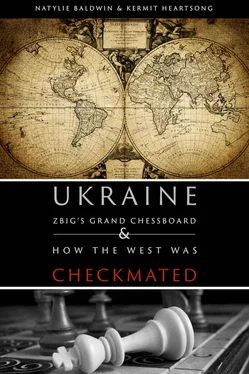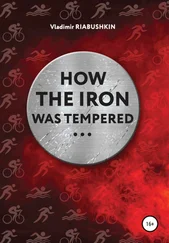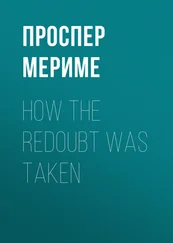Kermit Heartsong - Ukraine - ZBIG's Grand Chess Board & How The West Was Checkmated
Здесь есть возможность читать онлайн «Kermit Heartsong - Ukraine - ZBIG's Grand Chess Board & How The West Was Checkmated» весь текст электронной книги совершенно бесплатно (целиком полную версию без сокращений). В некоторых случаях можно слушать аудио, скачать через торрент в формате fb2 и присутствует краткое содержание. Год выпуска: 2015, Жанр: Политика, на английском языке. Описание произведения, (предисловие) а так же отзывы посетителей доступны на портале библиотеки ЛибКат.
- Название:Ukraine: ZBIG's Grand Chess Board & How The West Was Checkmated
- Автор:
- Жанр:
- Год:2015
- ISBN:нет данных
- Рейтинг книги:4 / 5. Голосов: 1
-
Избранное:Добавить в избранное
- Отзывы:
-
Ваша оценка:
- 80
- 1
- 2
- 3
- 4
- 5
Ukraine: ZBIG's Grand Chess Board & How The West Was Checkmated: краткое содержание, описание и аннотация
Предлагаем к чтению аннотацию, описание, краткое содержание или предисловие (зависит от того, что написал сам автор книги «Ukraine: ZBIG's Grand Chess Board & How The West Was Checkmated»). Если вы не нашли необходимую информацию о книге — напишите в комментариях, мы постараемся отыскать её.
Ukraine: ZBIG's Grand Chess Board & How The West Was Checkmated — читать онлайн бесплатно полную книгу (весь текст) целиком
Ниже представлен текст книги, разбитый по страницам. Система сохранения места последней прочитанной страницы, позволяет с удобством читать онлайн бесплатно книгу «Ukraine: ZBIG's Grand Chess Board & How The West Was Checkmated», без необходимости каждый раз заново искать на чём Вы остановились. Поставьте закладку, и сможете в любой момент перейти на страницу, на которой закончили чтение.
Интервал:
Закладка:
On November 21, 2013, perhaps after the stinging realization that he, the oligarchs, and the people of Ukraine would be targeted for IMF structural adjustments, and with Russian soft pressure (no gas, no trade), Yanukovych said no to the West and their IMF surrogate. What Yanukovych did not clearly understand, however, was that the offer was one that he could not refuse. However, as described by Robert Parry in the article, “NYT Is Lost in Its Ukraine Propaganda,” it was also an offer he could not possibly accept:
In November 2013, Yanukovych learned from experts at the National Academy of Sciences of Ukraine that the total cost to the country’s economy from severing its business connections to Russia would be around $160 billion, 50 times the $3 billion figure that the EU had estimated, Der Spiegel reported. (Parry 2015)
Yanukovych then signaled his intention to move east toward Russia and the Customs Union (which would later be transferred into the Eurasian Economic Union). Yanukovych’s “no” would “strangely” coincide with the increasing violence of the Maidan protests.
On November 24, 2013, three days after Yanukovych gave his “no” to the West, the first direct clashes between the protestors and police began. It would also mark the first attempt by a small segment of the protestors to aggressively attack a police barricade with the aim of breaking into the Cabinet of Ministers of Ukraine building (Meyssan 2014). The group identified as responsible for the aggressive demonstrations, attacking the police with firecrackers, and also penetrating a police barrier, was the neo-Nazi, All-Ukrainian Union (AAU, Svododa) Party.
However, despite the violence of the protestors, the gutting of buildings, and the destruction of various monuments, the Obama administration and other Western leaders warned President Yanukovych not to use force against the now violent and destructive protestors, who had turned to Molotov cocktails in their peaceful protest.
November 26, 2013,Western leaders began their open and direct interference in the internal affairs of the sovereign state of Ukraine. The first state actor to abet the protestors was the speaker of the Lithuanian Seimas (parliament), Loreta Grauzhinene, who was accompanied by two vice-chairmen of the Seimas. During their uninvited appearance and presentation to the Maidan crowd, Grauzhinene urged the protestors to press their demand that the Ukrainian government sign the association agreement with the EU (Meyssan 2014).
On December 1, 2013,right-wing activists, supporters of the Pravyi Sektor and Svoboda, attempted to violently overthrow the Yanukovych government. They clashed violently with police and eventually took over the House of the Trade Unions and the Kiev City State Administration building. The neo-Nazi youth group Sich/C14 then set up their headquarters in the Kiev City State Administration building.
On the same day, the deputy of the Polish Sejm (parliament), Jaroslaw Kaczynski, speaking from the Maidan stage, transmitted a message from the president of the European Parliament, Martin Schulz, while assuring the gathered crowd that their EU entry was a forgone conclusion (Meyssan 2014).
On December 4, 2013,the German Foreign Minister, Guido Westerwelle, visited the Maidan and met with leaders of the opposition, Vitali Klitschko (future Mayor of Kiev) and Arseniy Yatsenyuk (future Prime Minister).
On December 6-11, 2013, a number of uninvited foreign dignitaries visited the Maidan to rally on the protest that, at this point, had become decidedly violent.
US Assistant Secretary of State for European and Eurasian Affairs, Victoria Nuland, visited the Maidan and attempted to rally the protestors via the widely reported distribution of cookies (the truth is, indeed, stranger than fiction).
As outlined by Thierry Meyssan (2014) in the White Book report on the Ukraine, Nuland was but the visible tip of the iceberg of the State Department and various government controlled NGOs and private foundations:
According to some media and independent analysts, Euromaidan was directed by the US State Department through government-controlled NGOs and private foundations. The site of Ron Paul Institute for Peace and Prosperity (USA) published a study of the American political scientist Steve Wiseman, who provides specific information in this regard. According to him, the planning of events in Ukraine started in advance. A group of several dozen Ukrainian opposition organizations was created, which received funds from the Soros Foundation and the Pact Inc. organization, working for the US Agency for International Development. Steve Wiseman cites a number of examples of how protests against the government of Viktor Yanukovych were held, using American technologies and new developments in propaganda and mass communications. The publication claims that the main coordinators in the US State Department for the organization of the coup in Kiev were the Assistant Secretary of State for European and Eurasian Affairs Victoria Nuland and the US ambassador in Kiev Geoffrey Pyatt [sic]. (Meyssan 2014)
The report goes on to say that then-US Ambassador to Ukraine Geoffrey Pyatt gave grants upward of $50,000 to newly created Ukrainian Internet TV channel Hromadske, while coordinating additional funds from the Soros Foundation ($30,000 US) and the Netherlands Embassy in Kiev ($95,000 US). As Meyssan (2014) reports:
The newly created channel, according to the American political scientist, began to broadcast one day after the President of Ukraine Viktor Yanukovych suspended the signing of the Association Agreement with the EU on November 21, 2013 until analysis of its economic consequences [] is finalized. (Meyssan 2014)
A recording (Appendix I) between Nuland and Pyatt was then leaked to the internet. The conversation precisely detailed not only that the US was the major orchestrator of the coming coup, it also laid out who the successors of a new coalition would be once President Yanukovych had been illegally overthrown. An excerpt of the conversation follows; for a transcript of the full conversation please see Appendix I.
US Ambassador Pyatt:“I think we’re in play. The Klitchko piece is obviously the complicated electron here. Especially the announcement of him as deputy prime minister and you’ve seen some of my notes on the trouble in the marriage right now so we’re trying to get a read really fast on where he is on this stuff…and I’m glad you sort of put him on the spot on where he fits in this scenario.”
Nuland:“Good. I don’t think Klitsch should go into the government. I don’t think it’s necessary, I don’t think it’s a good idea.”
Pyatt:“Yeah, I guess..in terms of him not going into the government, just let him stay out and do his political homework and stuff.”
Nuland:“I think Yats is the guy who’s got the economic experience, the governing experience. He’s the…what he needs is Klitsch and Tyahnybok on the outside. He needs to be talking to them four times a week you know. I just think Klitsch going in…he’s going to be at that level working for Yatsenyuk, its just not going to work.”
Pyatt: “Yeah, no. I think that’s right. OK. Good. Do you want us to set up a call with him as the next step?”
The US contingent was joined on the Maidan on December 7, 2013 by Jacek Saryusz-Wolski, a member of the European Parliament, who incited the crowd to believe that Russia was interfering with the decision of Ukraine to join the EU, while urging the Yanukovych government to release the protestors who were responsible for violence from prisons and to stop its own violence against the protestors.
Читать дальшеИнтервал:
Закладка:
Похожие книги на «Ukraine: ZBIG's Grand Chess Board & How The West Was Checkmated»
Представляем Вашему вниманию похожие книги на «Ukraine: ZBIG's Grand Chess Board & How The West Was Checkmated» списком для выбора. Мы отобрали схожую по названию и смыслу литературу в надежде предоставить читателям больше вариантов отыскать новые, интересные, ещё непрочитанные произведения.
Обсуждение, отзывы о книге «Ukraine: ZBIG's Grand Chess Board & How The West Was Checkmated» и просто собственные мнения читателей. Оставьте ваши комментарии, напишите, что Вы думаете о произведении, его смысле или главных героях. Укажите что конкретно понравилось, а что нет, и почему Вы так считаете.











